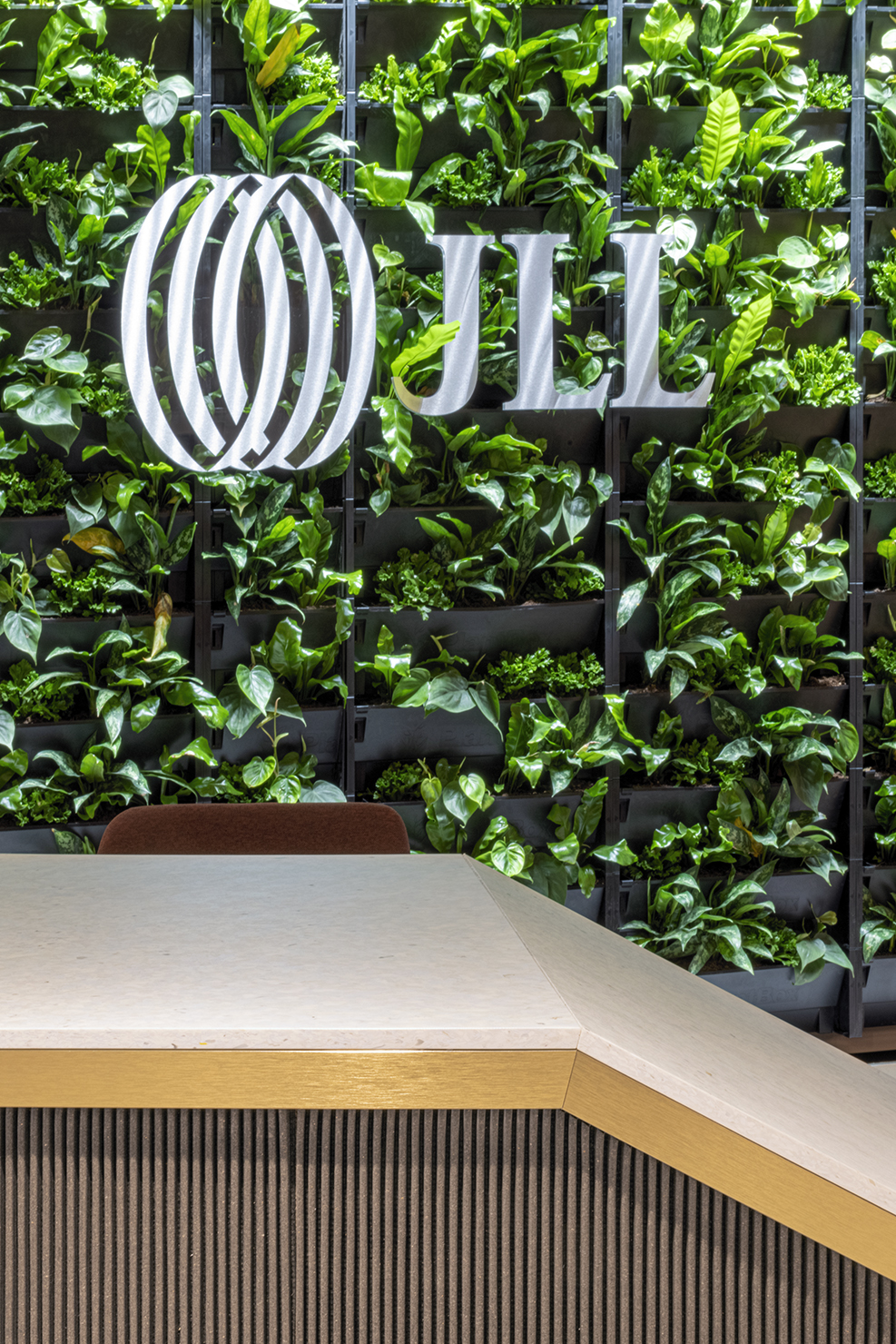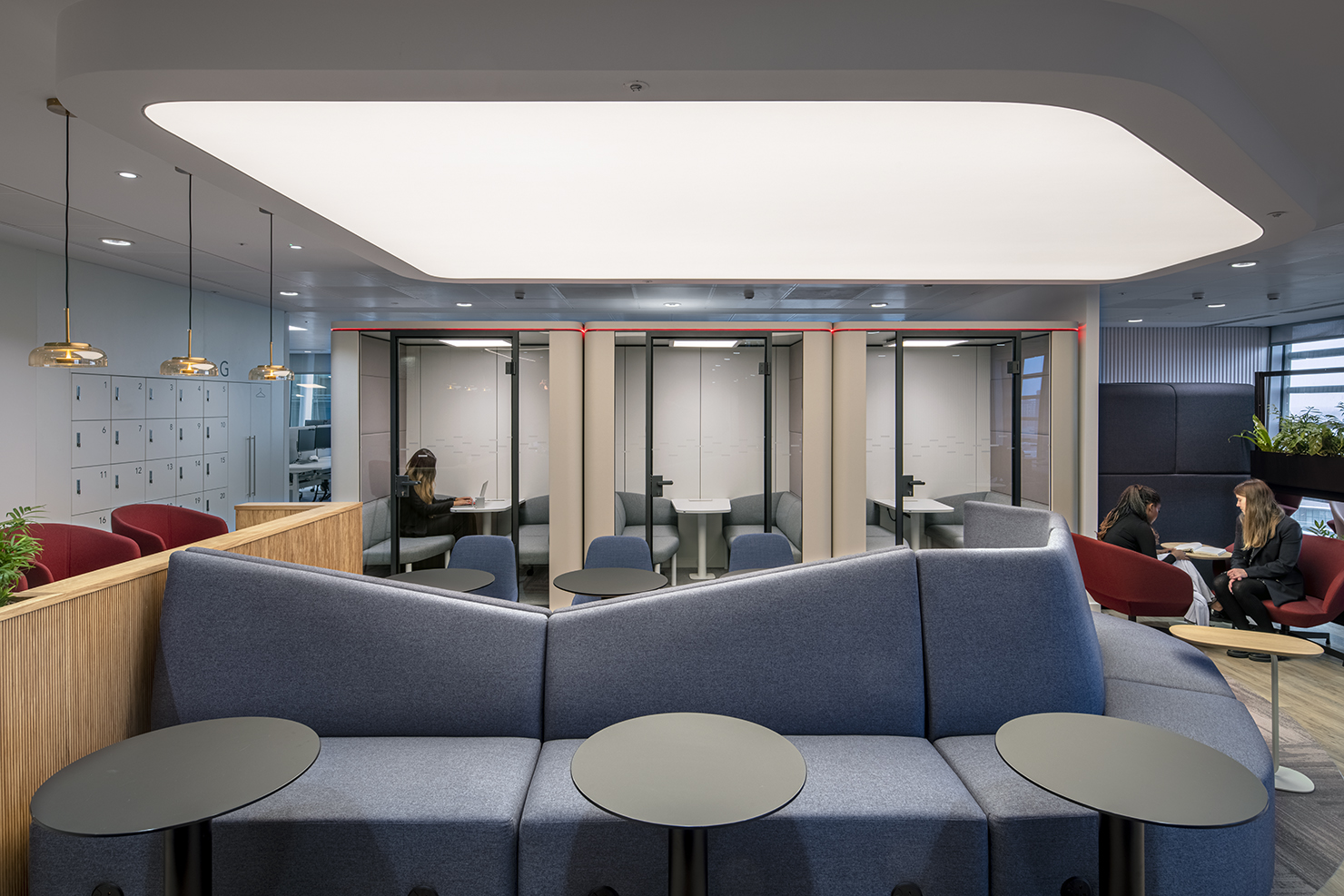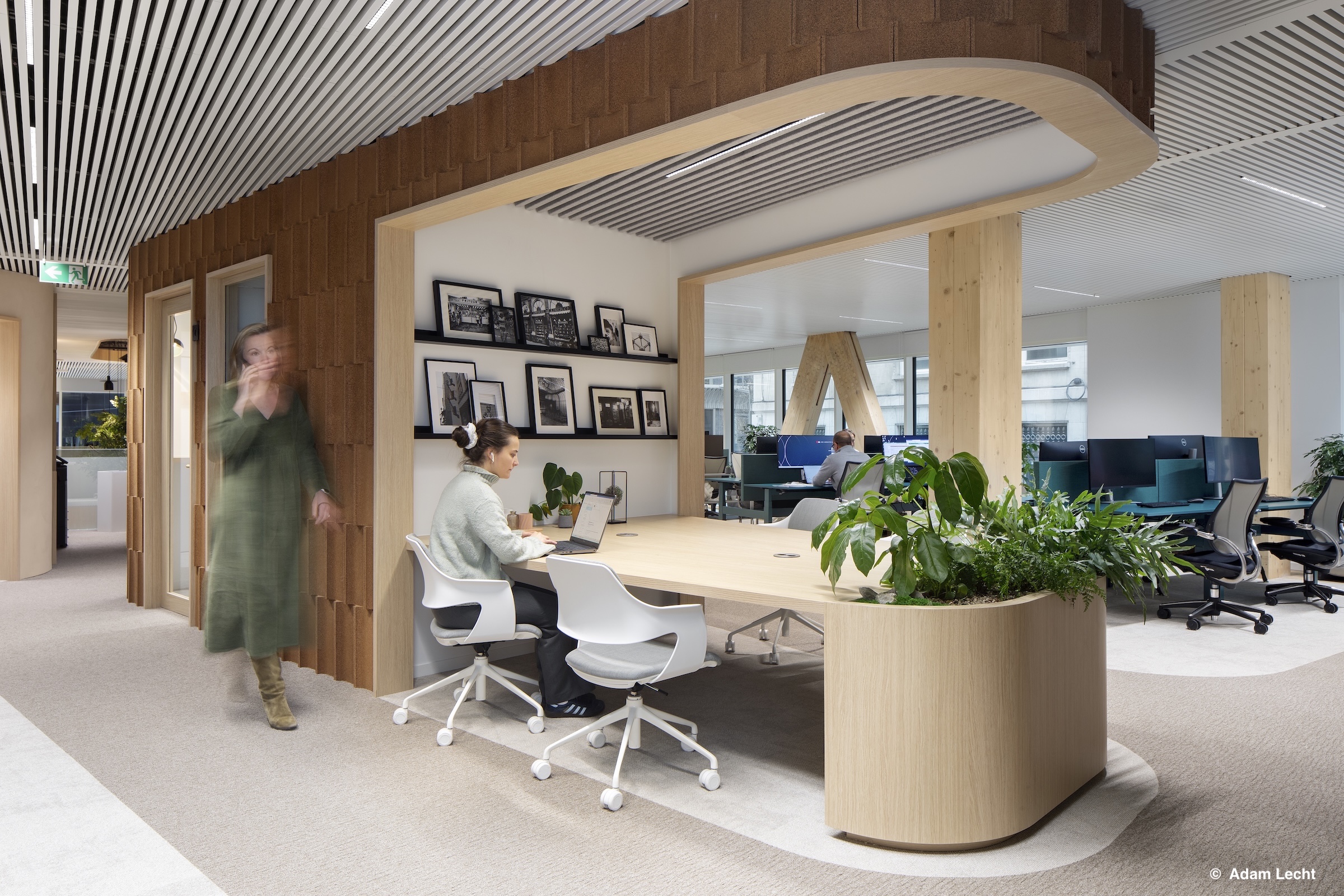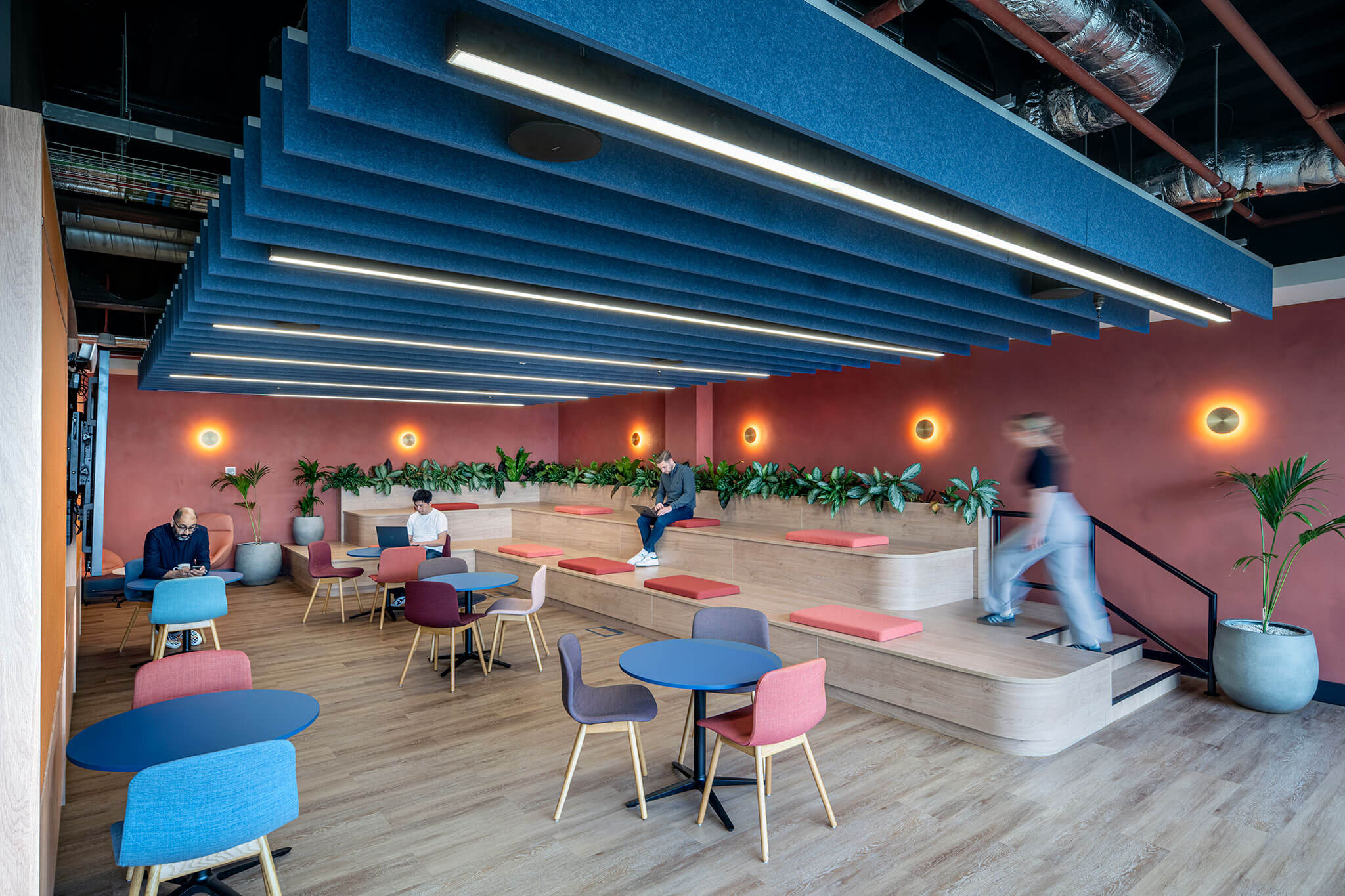Organisations are under pressure from a broad range of stakeholders to turn climate commitments into tangible results. And with carbon reporting on direct and indirect emissions (scope 1, 2 and 3 emissions) set to be mandatory for every organisation in the coming years, it’s critical to understand your organisation’s full value chain emissions to ensure targets are met.
A large proportion of our impact occurs in our supply chain. Organisations have a responsibility to ensure that they are minimising the impacts of purchases and making a positive contribution to society and the environment.
Your office space – an opportunity to further ESG goals
The built environment provides opportunities across five decision stages of the real estate lifecycle to increase social value. In addition to location, lease negotiation and the design of a space, responsible procurement is a key factor in ensuring ESG targets are met ( JLL Responsible Real Estate: Delivering environmental and social impact through the built environment). So, it’s important to choose a fit-out partner with a responsible supply chain in place, where their values and policies align with those of your organisation.
According to George Mitchell, Senior Pre-Construction Manager for Tétris UK, “Appointing a turnkey design and build provider means you have one partner responsible for your office fit-out needs. But their supply chain also affects your workplace’s environmental impact. It’s crucial to choose a partner with responsible sourcing practices, with visibility of its supply chain and sustainable sourcing at its heart. At Tétris, we’re moving beyond a sourcing and procurement focus to an end-to-end approach, including material sourcing, manufacturing, logistics and distribution to meet our clients’ sustainability needs.”
Assessing the impact of supply chains
Sustainable sourcing requires action at three levels – environmental, social, and governance. These are the factors to consider when selecting a fit-out partner and examining their supply chain:
- Environmental impact
Ilaria Parmigiani, Design Director for Tétris UK, outlines elements to consider, “How is material sourcing managed? Does the fit-out partner procure from suppliers where materials are certified, the mode of transport and distance travelled are scrutinised, and the whole-life impact of the space are considered? All these questions are key to ensuring your workplace is delivered responsibly.” In addition, it’s important for a waste management protocol to be in place throughout the full supply chain.
- Health and Safety culture
Are there robust Health and Safety requirements in place for all subcontractors; are systems for monitoring in place; and what is their track record? Ask if your fit-out partner is ISO 45001 accredited.
- Diversity and inclusion
Are there strong Diversity, Equity and Inclusion practices in place? What kind of facilities are provided for those working on site; what are the employment policies and practices of sub-contractors; what is the modern slavery policy and how are specified materials and products vetted?
- Carbon footprint consideration
Mitchell adds, “Ask if your fit-out partner has carbon tracking capabilities and if energy performance certificates are provided for products. Is there a strong commitment to environmental sustainability across their supply chain? Does your fit-out partner have an environmental management system in place with ISO 14001 accreditation?”
- Social impact
Check if social impact targets are in place for sub-contractors. Are local suppliers prioritised? Are there equal employment opportunities, supplier diversity and supply chain integrity? Find out if positive community outcomes are a priority.
The role of responsible design
“There are many design strategies that can be implemented to support a sustainable procurement policy, not only ensuring your employees enjoy a beautiful and functional space, but everyone can rest assured that their workplace was designed responsibly,” Parmigiani adds.

- Interior designers can support minority-owned small businesses by sourcing and specifying unique, locally made products. For example, at JLL’s office at 20 Water Street, the Smile Plastics reception desk countertops are made from recycled plastic waste, produced in the UK.
- Specifying innovative products and materials helps support job creation – a partner with a diversity of suppliers will help grow the market and support economic development. For example, the JLL Water Street fit-out uses Buxkin, an innovative material made from reconstituted offcuts from the shoe industry designed and manufactured in the Netherlands.

- Supporting furniture brands that prioritise environmental and social responsibility. For example, Kinnarps deliver their products wrapped in PET blankets which are reused and Sedus support two non-profit foundations which fund sustainable social and ecological projects in and outside Germany.

- Understanding the local context of the project and using materials that are viable in that setting. It’s not a one-size-fits-all approach.
- Knowledge of sustainability, certifications, and innovations. Parmigiani comments, “For example, interior designers familiar with the BREEAM Green Guide for materials specification can make the best design choices for a more sustainable space. In addition, at Tétris, we have developed our own Tétris Sustainability Code which streamlines the way we set and monitor sustainability goals for our projects.”
“Working with a fit-out partner that has responsible sourcing procurement strategies in place not only makes environmental and ethical sense, it will also minimise your organisation’s risks associated with procurement, such as supplier non-compliance, human rights violations and environmental degradation,” concludes Mitchell.
Ensuring you partner with providers that source products and services ethically will bring positive and sustainable change to your organisation and the community in which it operates. With 60% of global emissions generated by supply chains (UNGC – Accenture CEO Study, 2021), it’s clear that the providers you partner with, along with their supply chains, are key to ensuring your organisation stays on track to meet its net-zero targets.
Photos by Jonathan Banks

Is your office living up to its potential?


